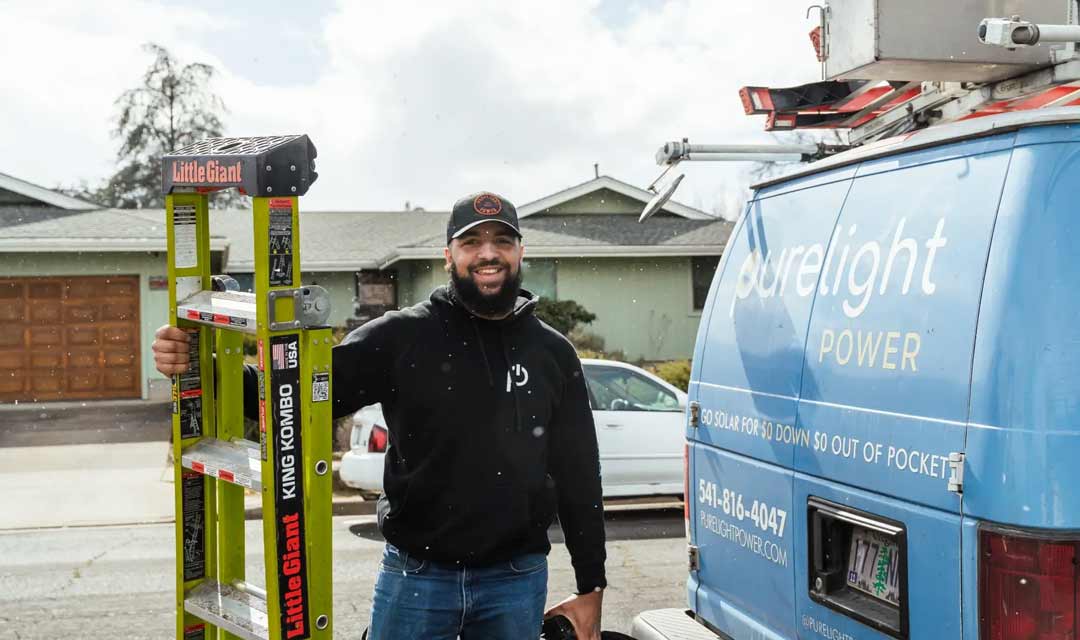Going solar is an excellent way for homeowners to save money, but finding the perfect company to contract with can be difficult. If you’re considering switching to renewable energy but have had trouble finding a good installer, this guide will explain how to choose a solar company.
Remember, many solar companies exist, and many of them spread misinformation about the solar industry. But by using these seven tips, you can make the right choice for your home.
How to Choose a Solar Company
Read Reviews
Reviews are the best indicator of a solar company’s strengths, making them invaluable when finding a good fit for you. If you value communication, you can use reviews to narrow in on a company that delivers top-tier customer service. Conversely, you should know if a solar company consistently knocks holes in walls and leaves exposed wire around your house.
You should also read local reviews to ensure you’re getting the most accurate information. Many solar companies are national brands, so while they may have many positive reviews in California, they may not have the same reputation in Ohio. Check your local listings and talk to neighbors who have gone solar to find the right solution for your home.
Talk to Reps
There are honest salespeople and dishonest salespeople. Unfortunately, determining the type you’re working with often falls to you. When you start working with a salesperson, try to have an open and honest conversation about your expectations for the solar system you want to have installed. It’s good if the company’s sales representative gives honest, in-depth information.
Get Multiple Quotes
Like any contracting job, you should get multiple bids before choosing a solar company. There are many reasons that the final price of a project may vary, but it’s good to know the price range. You can use competitive quotes as leverage for negotiating, helping you save more money in the long run.
The important thing with quotes is to be mindful of what each company offers. While a dramatically lower price may be tempting, that often comes at the cost of production capacity or installation quality. Both of those factors can end up costing you more money over the solar panel system’s lifespan, which leaves you worse off than when you started.
Look Out for Suspicious Offers
As the solar industry has grown, so has the number of scams. News stories about retirees getting locked into bad deals, predatory leasing plans, and advertisements for “free” solar panels have popped up everywhere. For people looking to go solar, avoiding these offers can feel like playing a game of Whack-a-Mole.
If an offer seems too good to be true, it is. The government isn’t giving anybody free solar panels; you won’t earn hundreds of dollars monthly by going solar. Anyone who says otherwise is lying to you.
Solar can be a great investment, but it’s not a financial panacea. It’s a way to save money over time and avoid the massive utility rate hikes companies are levying against their customers.
Ask for a Design Proposal
You (hopefully) wouldn’t get a tattoo without seeing the artist’s work, so why would you go solar without getting a design proposal? A design proposal is a sort of project bible that will help you understand the broad strokes of your solar project. It will give you an idea of your proposed system’s production capabilities and an estimate of your monthly utility bill based on the usage data you provide.
These proposals are invaluable for helping you determine whether you want to move forward on your solar project.
Clarify Special Discounts
Solar companies may offer you discounts depending on your individual situation. If you find a more inexpensive bid from a competitor, a company may meet you halfway with their price—that’s why it’s so important to negotiate. However, you should understand the specifics of these agreements before committing to a solar installer. Is the full price going down, or is the loan term being extended to give you a lower monthly cost? Review each line item to see where the discount is coming from, and ensure you have everything about the agreement in writing.
Know the Incentives
Independent from special discounts are the tax incentives that most Americans qualify for. These deals include programs like the Federal Solar Tax Incentive, which covers 30% of the cost of going solar via a tax credit. You should check with a tax preparer to ensure that you qualify for the available incentive programs, especially if the incentives are the make-or-break factor for whether you want to install solar panels.
The DSIRE website has the most comprehensive list of solar incentives available, breaking down state-by-state offers for specific situations. For example, installing solar panels in a business makes you eligible for different programs than installing them on a residential building.
Purelight Power Can Help You Get Started
Choosing a solar company isn’t easy, and you shouldn’t rush to install panels based on the first offer you get. If you want more advice on choosing a solar company, contact Purelight Power. We’ll give you genuine advice to help you make the right choice, whether it




